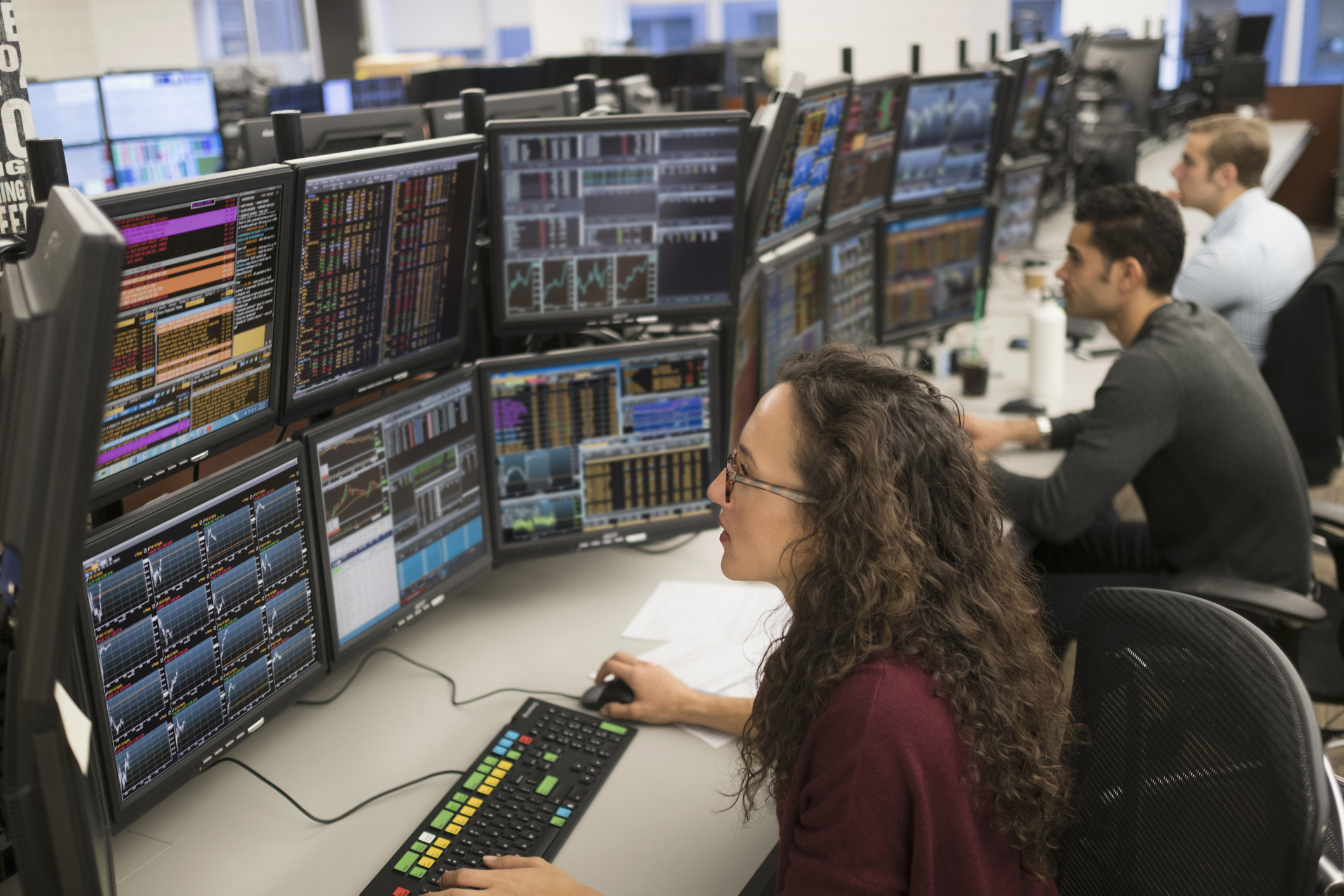What is a derivative?
We explain what derivatives are and how they work.


Get the latest financial news, insights and expert analysis from our award-winning MoneyWeek team, to help you understand what really matters when it comes to your finances.
You are now subscribed
Your newsletter sign-up was successful
Want to add more newsletters?

Twice daily
MoneyWeek
Get the latest financial news, insights and expert analysis from our award-winning MoneyWeek team, to help you understand what really matters when it comes to your finances.

Four times a week
Look After My Bills
Sign up to our free money-saving newsletter, filled with the latest news and expert advice to help you find the best tips and deals for managing your bills. Start saving today!
What is a derivative and how do they work? Despite derivatives (such as stock options) being a core part of the global financial system, with more than $600trn outstanding around the world, few people outside of the world of finance know what these instruments are and how they’re used.
Here we look at these tools and explore how you can use them in your portfolio.
A derivative is a financial instrument
A derivative is the collective term used for a wide variety of financial instruments whose price derives from or depends on the performance of other underlying investments. Bonds are a good example, so are equities, commodities or currencies. That’s where the name comes from - the product derives its value from an underlying asset.
MoneyWeek
Subscribe to MoneyWeek today and get your first six magazine issues absolutely FREE

Sign up to Money Morning
Don't miss the latest investment and personal finances news, market analysis, plus money-saving tips with our free twice-daily newsletter
Don't miss the latest investment and personal finances news, market analysis, plus money-saving tips with our free twice-daily newsletter
Derivatives are essentially a contract between two parties and can be used for hedging, speculation, or arbitrage. Examples of derivatives are futures, options and swaps. For instance, an option is a derivative because its value changes with the performance of an underlying stock.
Futures contracts are agreements to buy or sell an underlying asset at a future date and at a predetermined price. Options contracts give the holder the right, but not the obligation, to buy or sell an underlying asset at a future date and at a predetermined price. Swaps are agreements between two parties to exchange cash flows based on different financial instruments. Forwards are similar to futures contracts but are customized to meet the specific needs of the parties involved.
Derivatives are essentially a bet on which way the price of an underlying investment will go, which means that you can make money on them whether the market goes up or down. As such, they can be used either to gamble on the movement of the price of an asset, but more often than not, they’re used to reduce the risk of ('hedge') an investment in the underlying security.
How derivatives are used
Derivatives are often used for hedging, which is a strategy used to offset the risk of adverse price movements in an asset. For example, a farmer may use a futures contract to sell their crops at a predetermined price, thereby protecting themselves from the risk of a price decline. Similarly, an investor may use a put option to hedge against a decline in the value of their portfolio if the stock market declines.
In both of these cases, the risk is offset. The farmer and the investor aren’t really taking on any extra risk in their portfolio as if the value of the derivative declines, it will be offset by gains on the investment portfolio or value of the crop.
That’s why most derivatives are fairly safe. Both parties know risks are offset and limited. The only profit that can be made in this case on the part of the party selling the derivatives are commissions.
These financial instruments can become much riskier when used for speculation. Speculators use derivatives to try to profit from price movements in the underlying asset without owning the corresponding underlying asset. That means if the value of the derivative falls, there’s nothing to offset the decline and the investor must put up extra collateral. If they can’t both sides will end up losing money. That’s just what happened in 2009. Banks and investors gambling on derivative prices couldn’t pay when losses started rolling in and they had to be bailed out by governments.
Get the latest financial news, insights and expert analysis from our award-winning MoneyWeek team, to help you understand what really matters when it comes to your finances.
Jacob is an entrepreneur, hedge-fund expert and the founder and CEO of ValueWalk.
What started as a hobby in 2011 morphed into a well-known financial media empire focusing in particular on simplifying the opaque world of the hedge fund.
Before devoting all his time to ValueWalk, Jacob worked as an equity analyst specialising in mid- and small-cap stocks. Jacob also worked in business development for hedge funds.
He lives with his wife and five children in New Jersey.
Jacob only invests in broad-based ETFs and mutual funds to avoid any conflict of interest that could arise from buying individual stocks.
-
 ISA fund and trust picks for every type of investor – which could work for you?
ISA fund and trust picks for every type of investor – which could work for you?Whether you’re an ISA investor seeking reliable returns, looking to add a bit more risk to your portfolio or are new to investing, MoneyWeek asked the experts for funds and investment trusts you could consider in 2026
-
 The most popular fund sectors of 2025 as investor outflows continue
The most popular fund sectors of 2025 as investor outflows continueIt was another difficult year for fund inflows but there are signs that investors are returning to the financial markets
